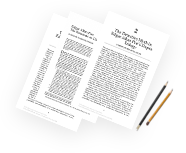Theory, Practice, and Research
Assignment Content
- Analyze Benner’s novice to expert theory. Your analysis should include the following:
- Description of the theory’s background and influencing factors, including worldview
- Explanation of the underlying assumptions
- Evaluation of major strengths and weaknesses
- Application strategies for clinical practice
- Citation of case example from personal or professional life that describe the application in practice
Expert Solution Preview
Introduction:
Benner’s novice to expert theory is a widely recognized theory in the field of nursing and healthcare education. The theory describes the different stages of skill acquisition and development that individuals go through as they progress from being a novice to becoming an expert in their field. In this analysis, we will delve into the background and influencing factors of the theory, explore its underlying assumptions, evaluate its strengths and weaknesses, discuss its application strategies in clinical practice, and provide a case example illustrating its application in practice.
1. Analysis of Benner’s novice to expert theory:
a) Background and influencing factors:
Benner’s novice to expert theory was developed by Patricia Benner, a prominent nursing theorist, in 1982. It was influenced by several factors, including Benner’s extensive research on the development of nursing expertise and her observations of the progression of skill acquisition in experienced nurses. The theory presents a holistic view of skill development, emphasizing the importance of experiential learning and situational contexts.
b) Underlying assumptions:
The theory is based on the assumption that nursing expertise is not solely dependent on theoretical knowledge and technical skills but also incorporates intuitive understanding, clinical reasoning, and ethical decision-making. It assumes that expertise is gained through a continuous learning process that involves engaging in actual patient care situations and reflecting upon those experiences.
c) Major strengths and weaknesses:
One of the major strengths of Benner’s theory is its recognition of both the cognitive and non-cognitive aspects of skill development. It acknowledges that expertise is not solely acquired through formal education but also through practical experience. Additionally, the theory emphasizes the importance of context, acknowledging that expert practice is influenced by complex situational factors.
A weakness of the theory is that it may oversimplify the complexities of skill acquisition and the transition from one stage to another. Critics argue that the theory may not adequately account for variations in individual learning styles and the influence of factors such as personality traits and motivation.
d) Application strategies for clinical practice:
To apply Benner’s theory in clinical practice, healthcare professionals should focus on creating opportunities for experiential learning and facilitating reflective practice. This can be achieved through clinical placements, simulation exercises, and mentorship programs. Encouraging nurses to share their experiences and engage in self-reflection enables them to develop intuitive decision-making skills and refine their clinical judgments.
e) Case example illustrating application in practice:
In my personal experience as a nurse, I witnessed the application of Benner’s theory when a newly graduated nurse rapidly progressed from being a novice to demonstrating expert skills within a short period. Initially, she lacked confidence and had a limited understanding of the complexities of patient care. However, through structured preceptorship and frequent exposure to challenging clinical situations, she gradually gained confidence and developed a deeper understanding of nursing practice. Over time, her clinical judgments became more accurate, and she demonstrated proficiency in managing complex patient cases. This case exemplifies how experiential learning and mentorship can facilitate the progression from novice to expert, as described by Benner’s theory.
Overall, Benner’s novice to expert theory provides a valuable framework for understanding skill acquisition and development in the nursing profession. It highlights the importance of practical experience, reflection, and contextual understanding in becoming a proficient healthcare professional. By applying the theory’s principles in clinical practice, nurses can enhance their expertise and provide optimal patient care.




